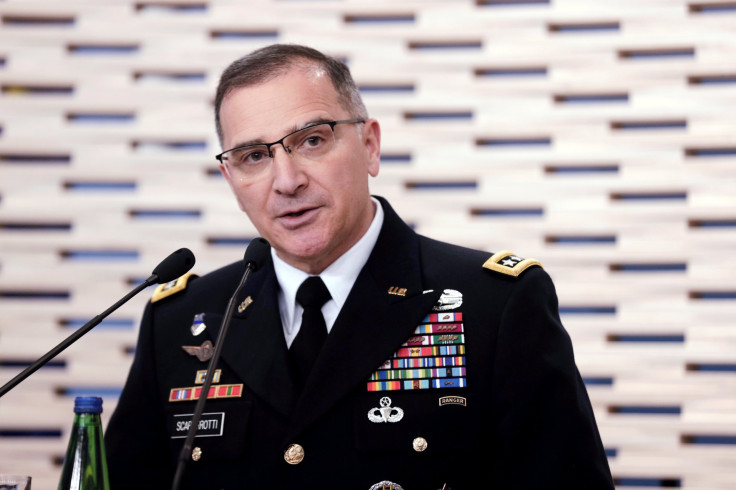What’s Next For NATO? Countries Look To Make Montenegro Newest Member To Deter Russian Influence In Eastern Europe

It is "absolutely critical” for NATO members to ratify the tiny European nation of Montenegro as the newest member of the alliance, in a move that could deter Russian influence in the Balkans region, NATO Commander Gen. Curtis Scaparrotti reportedly told the Senate Armed Services Committee on Thursday.
The Senate is scheduled to vote on Montenegro's membership into North Atlantic Treaty Organization next week after being held up for months when Republican Senators Rand Paul of Kentucky and Mike Lee of Utah blocked a quick vote among members of the Senate’s Republican leadership. With an army made up of just 2,000 troops, Montenegro would hardly boost the West’s defense in any confrontation with Russia. Subsequently, Paul questioned the benefit of admitting a country that could offer U.S. minimal military aid at the expense of angering Russia.
Read: Does Germany Owe NATO Money? Trump Claims Berlin Owes ‘Vast Sums Of Money’ To Alliance
Secretary of State Tillerson wrote a letter March 7 urging members of the Senate to ratify Montenegro's membership into the alliance, arguing that the country’s membership in the alliance would promote democratic reform and security among its Balkan neighbors.
"Montenegro's participation in the May NATO Summit as full member, not as an observer, will send a strong signal of transatlantic unity," Tillerson's letter reads in part. "It is strongly in the interests of the United States..."
Montenegro, a former Yugoslavian republic with a population of roughly 650,000 needs approval from each of the 28 NATO members in its bid to become a full member of the alliance in May. It had acquired the approval of 24 of the countries as of Friday afternoon. In addition to Moscow opposing NATO adding any new members, it has been accused of meddling in Montenegro's political affairs. Montenegro's Prosecutor's Office had previously accused the Kremlin of organizing a state coup on Oct. 16, 2016, and plotting to kill former Prime Minister Milo Djukanovic.
“It is clear that the East-West tensions have left consequences on the political and security situation in the western Balkans,” Djukanovic told the Associated Press.
Intense friction between NATO and Russia arose in 2014 when Moscow annexed Crimea and began providing military aid to pro-Russian separatist groups in the Ukrainian Civil War, causing several European NATO members to place sanctions on the Kremlin.
Trepidation about the U.S. prioritizing its relationship with Russia over its European allies arose Monday when reports emerged revealing Tillerson planned on skipping a meeting with NATO foreign ministers next month in order to host the Chinese president with President Donald Trump at his Mar-a-Lago resort in south Florida, while planning to visit Russia later in April.
Trump has routinely criticized European NATO members for not allotting enough resources to fight terrorism on its own soil, citing their failure to uphold the NATO mandate requiring members countries to spend two percent of its GDP on military expenditures. Trump accused Germany Chancellor Angela Merkel that her country owed NATO "vast sums" of money after the two's meeting at the White House last week, CNN reported Tuesday. Germany spent 1.2 percent of its GDP on military defense in 2016, according to NATO's annual report last year.
© Copyright IBTimes 2024. All rights reserved.












